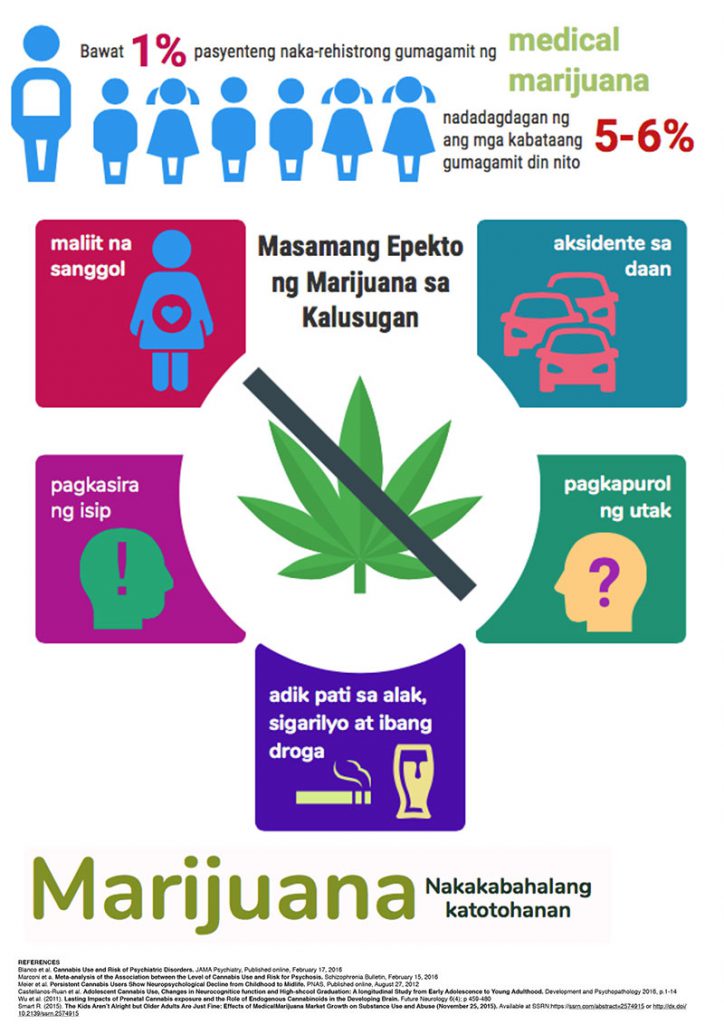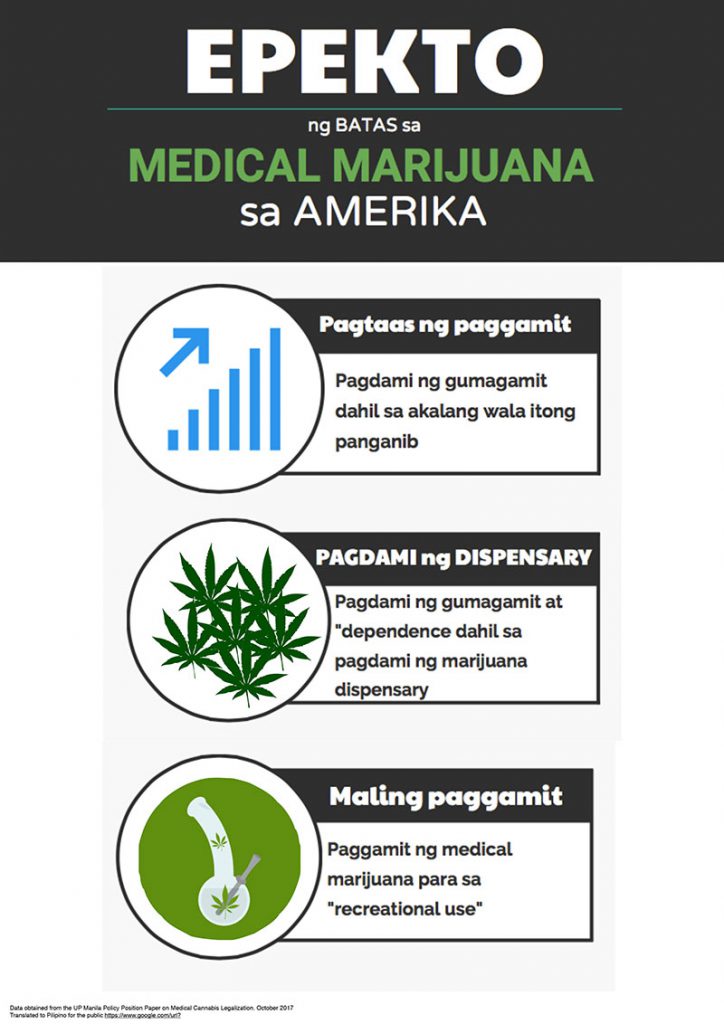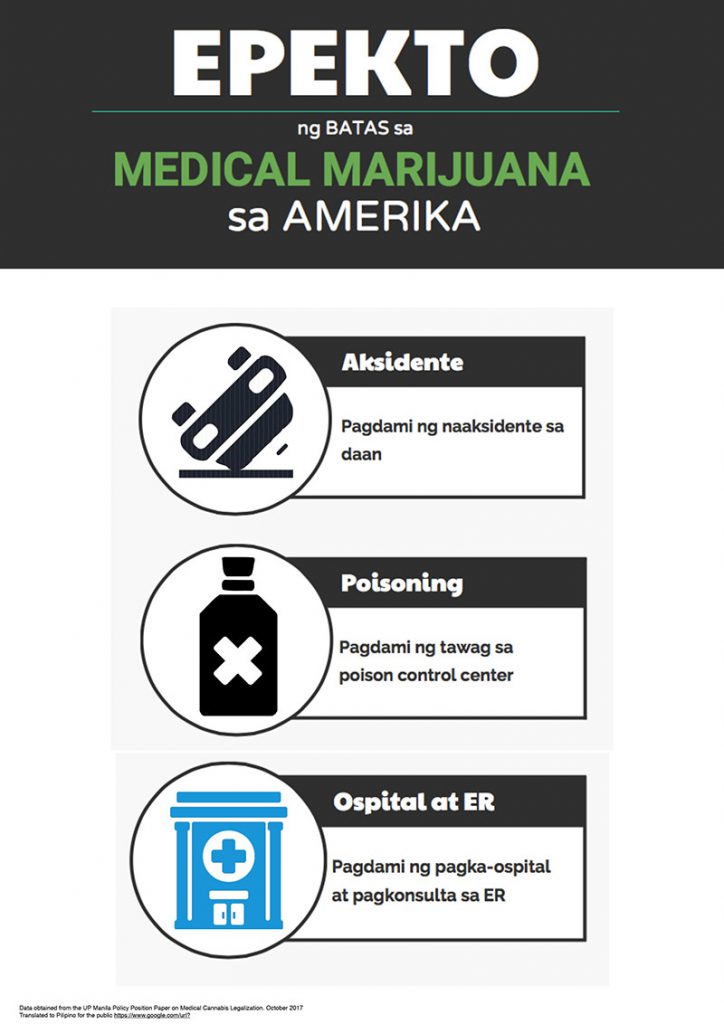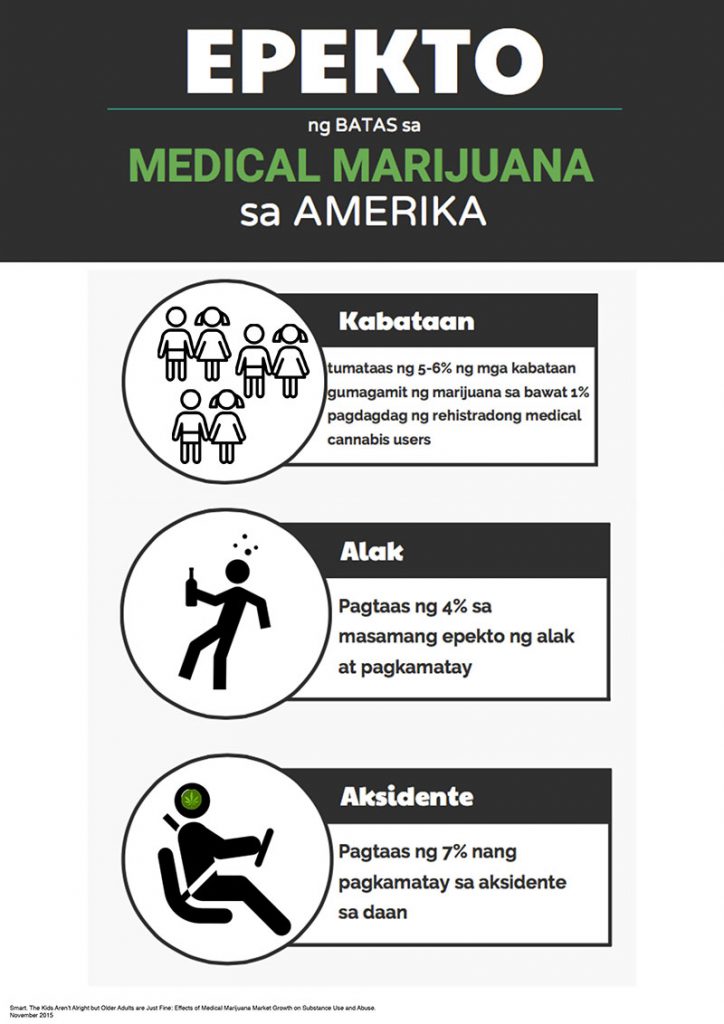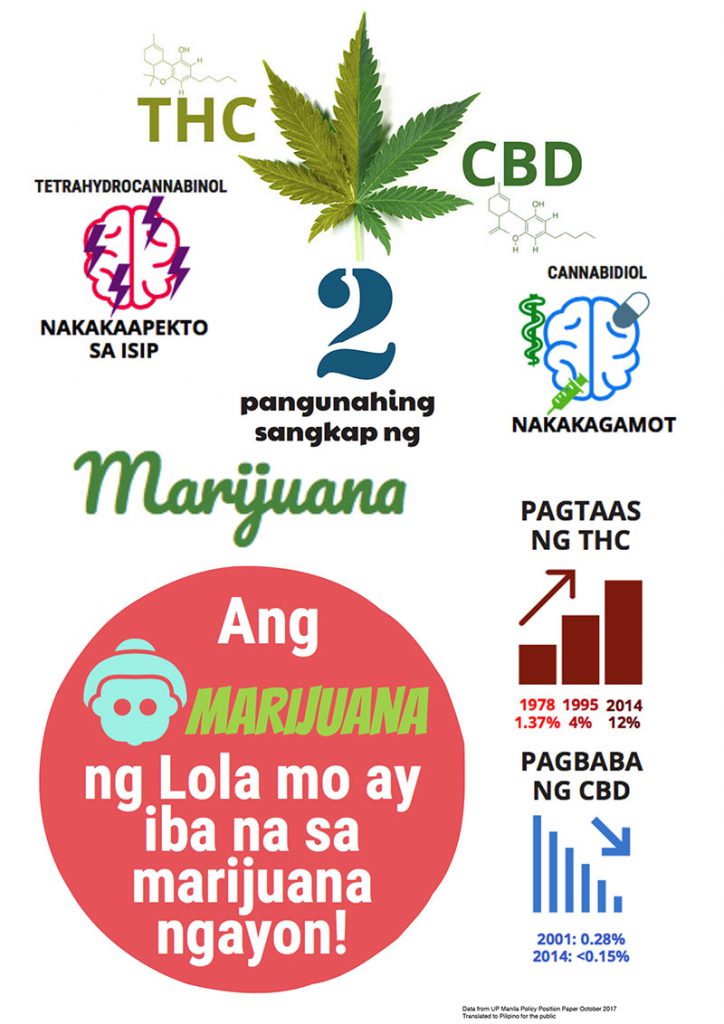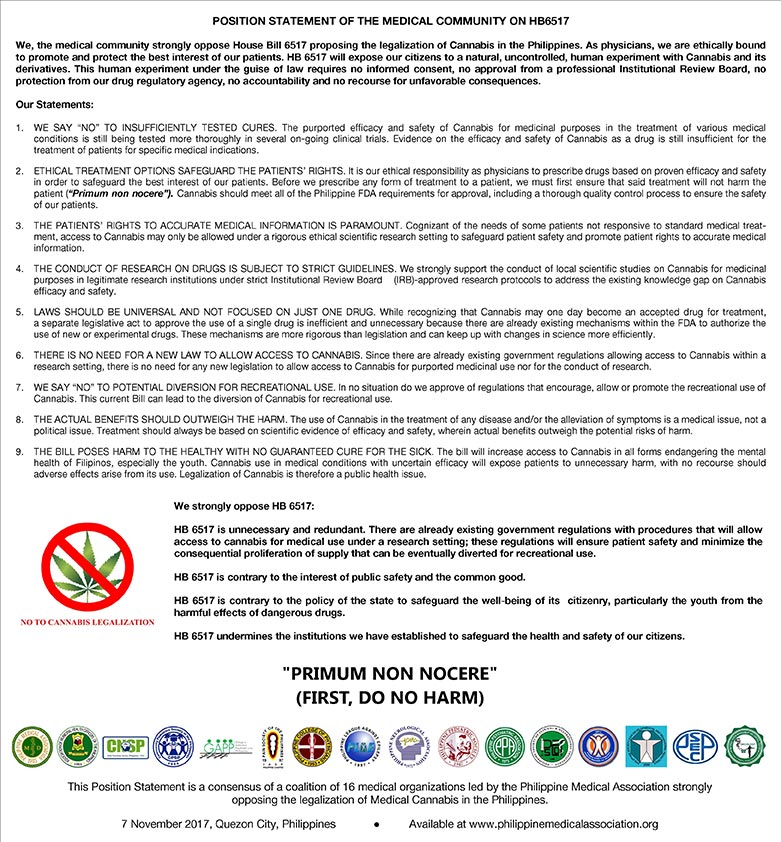POSITION STATEMENT OF THE MEDICAL COMMUNITY ON HB6517
We, the medical community strongly oppose House Bill 6517 proposing the legalization of Cannabis in the Philippines. As physicians, we are ethically bound to promote and protect the best interest of our patients. HB 6517 will expose our citizens to a natural, uncontrolled, human experiment with Cannabis and its derivatives. This human experiment under the guise of law requires no informed consent, no approval from a professional Institutional Review Board, no protection from our drug regulatory agency, no accountability and no recourse for unfavorable consequences.
Our Statements:
1. WE SAY “NO” TO INSUFFICIENTLY TESTED CURES. The purported efficacy and safety of Cannabis for medicinal purposes in the treatment of various medical conditions is still being tested more thoroughly in several on-going clinical trials. Evidence on the efficacy and safety of Cannabis as a drug is still insufficient for the treatment of patients for specific medical indications.
2. ETHICAL TREATMENT OPTIONS SAFEGUARD THE PATIENTS’ RIGHTS. It is our ethical responsibility as physicians to prescribe drugs based on proven efficacy and safety in order to safeguard the best interest of our patients. Before we prescribe any form of treatment to a patient, we must first ensure that said treatment will not harm the patient (“Primum non nocere”). Cannabis should meet all of the Philippine FDA requirements for approval, including a thorough quality control process to ensure the safety of our patients.
3. THE PATIENTS’ RIGHTS TO ACCURATE MEDICAL INFORMATION IS PARAMOUNT. Cognizant of the needs of some patients not responsive to standard medical treatment, access to Cannabis may only be allowed under a rigorous ethical scientific research setting to safeguard patient safety and promote patient rights to accurate medical information.
4. THE CONDUCT OF RESEARCH ON DRUGS IS SUBJECT TO STRICT GUIDELINES. We strongly support the conduct of local scientific studies on Cannabis for medicinal purposes in legitimate research institutions under strict Institutional Review Board (IRB)-approved research protocols to address the existing knowledge gap on Cannabis efficacy and safety.
5. LAWS SHOULD BE UNIVERSAL AND NOT FOCUSED ON JUST ONE DRUG. While recognizing that Cannabis may one day become an accepted drug for treatment, a separate legislative act to approve the use of a single drug is inefficient and unnecessary because there are already existing mechanisms within the FDA to authorize the use of new or experimental drugs. These mechanisms are more rigorous than legislation and can keep up with changes in science more efficiently.
6. THERE IS NO NEED FOR A NEW LAW TO ALLOW ACCESS TO CANNABIS. Since there are already existing government regulations allowing access to Cannabis within a research setting, there is no need for any new legislation to allow access to Cannabis for purported medicinal use nor for the conduct of research.
7. WE SAY “NO” TO POTENTIAL DIVERSION FOR RECREATIONAL USE. In no situation do we approve of regulations that encourage, allow or promote the recreational use of Cannabis. This current Bill can lead to the diversion of Cannabis for recreational use.
8. THE ACTUAL BENEFITS SHOULD OUTWEIGH THE HARM. The use of Cannabis in the treatment of any disease and/or the alleviation of symptoms is a medical issue, not a political issue. Treatment should always be based on scientific evidence of efficacy and safety, wherein actual benefits outweigh the potential risks of harm.
9. THE BILL POSES HARM TO THE HEALTHY WITH NO GUARANTEED CURE FOR THE SICK. The bill will increase access to Cannabis in all forms endangering the mental health of Filipinos, especially the youth. Cannabis use in medical conditions with uncertain efficacy will expose patients to unnecessary harm, with no recourse should adverse effects arise from its use. Legalization of Cannabis is therefore a public health issue.
We strongly oppose HB 6517:
HB 6517 is unnecessary and redundant. There are already existing government regulations with procedures that will allow access to cannabis for medical use under a research setting; these regulations will ensure patient safety and minimize the consequential proliferation of supply that can be eventually diverted for recreational use.
HB 6517 is contrary to the interest of public safety and the common good.
HB 6517 is contrary to the policy of the state to safeguard the well-being of its citizenry, particularly the youth from the harmful effects of dangerous drugs.
HB 6517 undermines the institutions we have established to safeguard the health and safety of our citizens.
“PRIMUM NON NOCERE”
(FIRST, DO NO HARM)
1. Philippine Medical Association
2. Association of Municipal Health Officers of the Philippines
3. Child Neurology Society of the Philippines
4. Community Pediatric Society of the Philippines
5. Group of Addiction Psychiatry of the Philippines
6. Pain Society of the Philippines
7. Philippine College of Physicians
8. Philippine League Against Epilepsy, Inc.
9. Philippine Neurological Association
10. Philippine Pediatric Society
11. Philippine Psychiatric Association
12. Philippine Society of Clinical and Occupational Toxicology (PSCOT)
13. Philippine Society of Adolescent Medicine Specialist
14. Philippine Society for Developmental and Behavioral Pediatrics
15. Philippine Society for Experimental and Clinical Pharmacology
16. UP-PGH National Poison Management and Control Center ( NPMCC )
This Position Statement is a consensus of a coalition of 16 medical organizations led by the Philippine Medical Association strongly opposing the legalization of Medical Cannabis in the Philippines.
7 November 2017, Quezon City, Philippines
